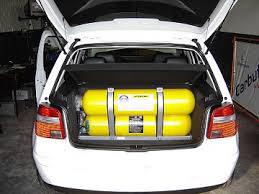The Federal Government’s Conversion Incentive Programme: A Step Forward or Just Empty Promises?
The urgent need for a transition from petroleum vehicles to more sustainable fuel alternatives has never been more apparent. The Conversion Incentive Programme (CIP) initiated by the federal government, which aims to convert one million petroleum-powered vehicles to Compressed Natural Gas (CNG) by 2027, represents a significant step in this direction. However, recent developments have thrown this initiative into question, leading many citizens to wonder about the government’s commitment to making this transition a reality.
Since November 2024, frustrations have grown among vehicle owners who have enrolled in the CIP. Despite their willingness to adapt to more environmentally friendly and cost-effective CNG fuel, subsidized CNG converters have ceased operations. The reason cited by these companies: the federal government has failed to provide the necessary conversion kits, which has resulted in a halt to all conversions. This delay is particularly disheartening for those who have already made payments and were counting on the conversion to help them save on the soaring costs of petrol.
Given the growing cost of fuel, many individuals find themselves stuck in a bind. While there is a viable and cheaper alternative in CNG, the lack of available kits means that owners of petrol vehicles are left with no choice but to continue purchasing high-priced fuel. This situation has raised serious questions about the validity of claims that the government has commenced the distribution of CNG conversion kits nationwide. If the distribution had indeed started, why are converters unable to carry out the conversions as planned?
Moreover, the voices of frustration are becoming louder. The transition to CNG is not merely a shift in fuel but a critical move towards reducing greenhouse gas emissions and promoting sustainable energy solutions. The potential benefits of the CIP — including reduced fuel costs for consumers and a decrease in environmental pollution — can only be realized if the government acts promptly and decisively.

Car owners are beginning to call for accountability. Many are urging the federal government to expedite the production and distribution of CNG kits. Individuals who have already invested in this transition deserve timely access to their converted vehicles. It is a matter of fairness, as well as a necessity for the environment and the economy.
In conclusion, while the goals of the Conversion Incentive Programme are commendable, the execution has fallen short. The ongoing delays in supplying conversion kits compromise the efforts to promote CNG as a viable alternative to petroleum. If the government is serious about making this transition a reality, it must take immediate action to resolve the current issues faced by CNG converters and ensure that the programme is back on track. Only then can we hope to see this initiative benefit the economy and the environment as intended.
It is essential for the federal government to listen to the concerns of the citizens and act swiftly to restore faith in the CIP. The long-term vision of reducing our reliance on fossil fuels and moving towards a sustainable future hinges on the actions taken today.
...Never miss an update again! Join our WhatsApp group for the latest news, straight to your phone! (Click Here)




